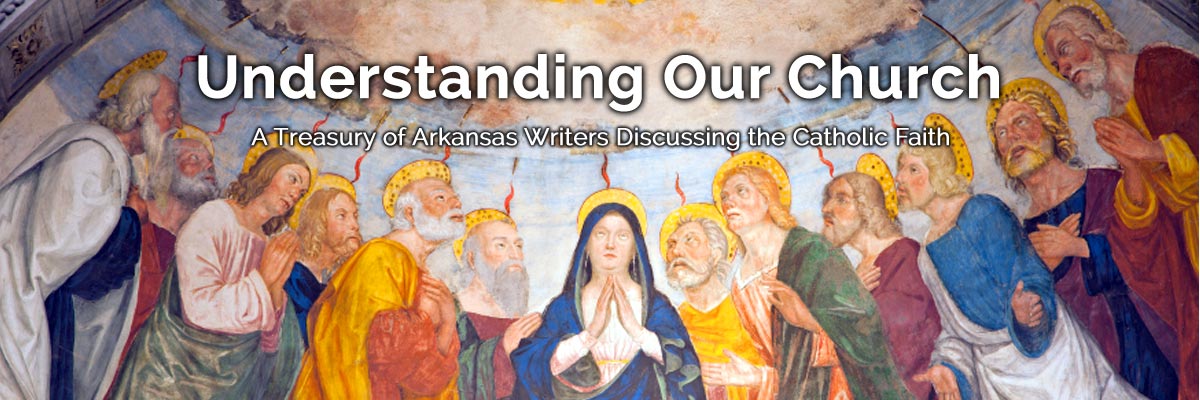Official Website of the
Catholic Diocese of Little Rock
Confession not just avoiding sin, but growing relationship with God
Published: August 13, 2015
By Deacon Mike Cumnock
St. Mary Church, Batesville / St. Cecilia Church, Newport
My introduction to the sacrament of reconciliation was not a particularly pleasant one. In those days, fear, the Baltimore Catechism and the sisters who taught in my school set the tone.
God was presented as a very strict father, who was always on the lookout for sinners and stood ready to punish severely from a long list of misdeeds. Every Friday I was required to go to confession armed with a multi-page list of possible infractions (examination of conscience).
I will admit that confession/reconciliation can often be difficult because it requires admitting my faults to another human being. With God, as in most relationships, honesty can be hard. I always asked my children to be honest with me, tried to withhold harsh judgment and offered them my forgiveness. I believe that God does the same with me.
Sister stood guard verifying that each of us actually went into the confessional. I once explained to the priest, whom I visited weekly, that I only came in to avoid the consequences of “not coming in.” He just laughed, and we visited for a few minutes, and he sent me out with instructions to pray quietly for awhile.
Soon I was using my required confessional time to share things I was struggling with, and the experience became much more rewarding. I grew up in the pre-Vatican II Church, which was discouraged from reading the Bible (“Father will tell you what you need to know”), and the Church was much less participatory.
The Second Vatican Council brought many changes including my exposure to Scripture. I am not sure when my relationship with God became more adult, but I discovered the value of the sacraments as a source of grace and part of nurturing that relationship.
I, like many Catholics, failed to comprehend that confession offers the actual forgiveness of my sins. I clearly remember going to confession once in my early 20s, I felt forgiven and began sharing with the confessor about being caught in a dilemma of choosing between something that was “good” and something that might be “better.”
Our discussion was enjoyable, as I realized I was seeking ways to grow my relationship with God and his people … as opposed to “avoiding evil.” I felt blessed by being a member of the Catholic Church with all its sources of help strengthening my relationship with the Trinity.
I felt/ feel fortunate to be a member of a church that stands ready to help me to be the best I can be. Jesus and I developed a growing relationship, strengthened by prayer and reception of the sacraments, by the forgiveness of my sins and his real presence in the Eucharist.
I will admit that confession/reconciliation can often be difficult because it requires admitting my faults to another human being. With God, as in most relationships, honesty can be hard. I always asked my children to be honest with me, tried to withhold harsh judgment and offered them my forgiveness. I believe that God does the same with me.
I discovered that most of the time their mistakes were made in an attempt to do the right thing as they struggled to figure out their best path. When I do something that is sinful, it might be painful to admit it, but sometimes the struggle is admitting that I need help in moving forward in a positive direction.
Sin can be addictive, and reconciliation is my opportunity to ask for forgiveness, cleansing and supportive help in growing as a Christian. Sacraments are gifts that provide grace and strengthen us on our journey. Jesus came to bring God’s kingdom to his people; that kingdom includes forgiveness.
Those of us fortunate enough to be members of the Church are blessed with many opportunities to receive forgiveness/grace. Jesus left us these special gifts to strengthen us along the way. Life brings lots of stressors — reconciliation coupled with frequent Eucharist are gifts that grace the journey.




